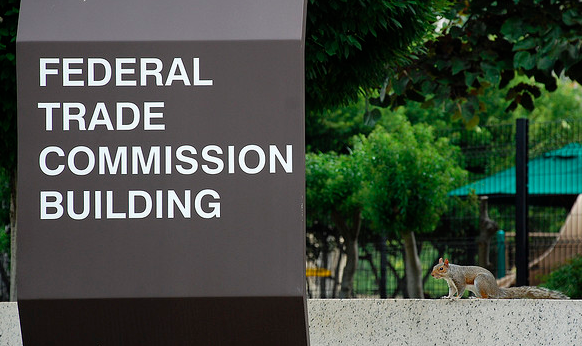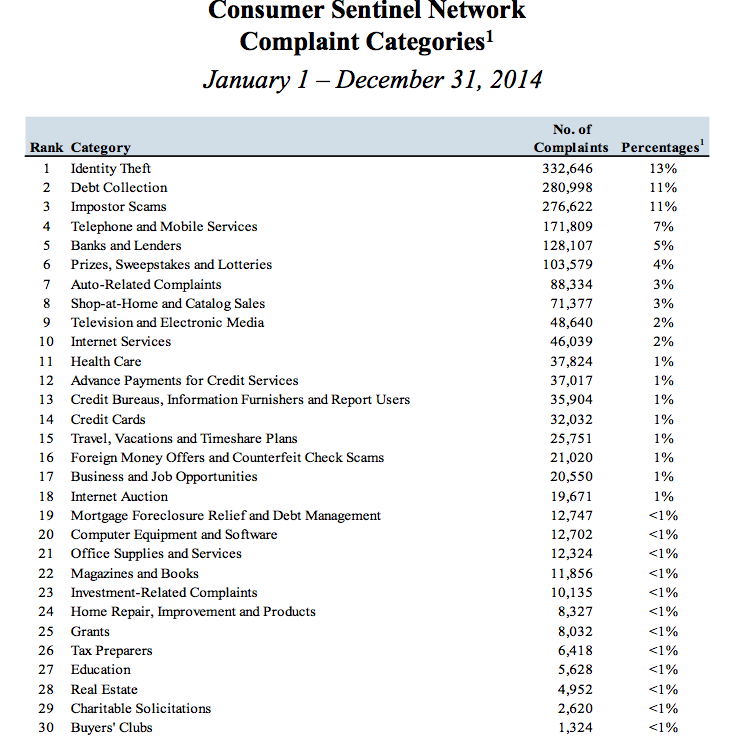Consumers Lost $1.7B To Scams In 2014, Imposter Crimes On The Rise

(afagen)
For the 15th consecutive year, identity theft topped the Federal Trade Commission’s list of top consumer complaints. But its reign could be coming to an end following a significant increase in the number of scams in which con artists impersonating government agents and law enforcement personnel part consumers from their money.
The FTC’s 2014 Consumer Sentinel Network Data Book report [PDF] found that consumers lost $1.7 billion to scams and frauds in 2014.
In all, the report found that consumers filed 2.5 million complaints. Of the complaints, 13% (or 332,000) were related to ID theft, while debt collection and imposter scams accounted for 11% of all scams each (280,000 and 276,000, respectively).
“While identity theft remains a huge issue, consumers should also keep a close eye out for imposter scams,” Jessica Rich, director of the FTC’s Bureau of Consumer Protection, said in a statement. “Whether it’s pretending to be the IRS during tax season, or making false promises of a lottery win, scammers are increasingly sophisticated in their efforts to deceive consumers, but the FTC will continue working to shut these scammers down.”
The FTC has recently cracked down on con artists impersonating government representatives.
Just last year, the agency shut down a debt collection operation that collected millions of dollars from consumers by allegedly saying they were with the government.
During the scheme, which operated since at least May 2010, the defendants allegedly portrayed themselves as representatives of the government by using company names that suggested a government affiliation or national presence, such as Federal Recoveries, LLC, Federal Check Processing, Inc, Federal Processing Services, Inc., Nationwide Check Processing, and State Check Processing, Inc.
But impersonations weren’t limited to government agents: In October, the FTC shut down a New York-based support scam business that allegedly tricked older consumers into paying nearly $2.5 million for technical support services they didn’t need and for software that was actually available for free. The company often cold-called consumers selling services and support while pretending to be representatives for Microsoft or Facebook.
In terms of the breakdown of the other most-complained about categories, here is the full list:
The Consumer Sentinel Network’s secure online database is available to more than 2,000 civil and criminal law enforcement agencies across the country and abroad. Agencies use the data to research cases, identify victims and track possible targets.
Identity Theft Tops FTC’s Consumer Complaint Categories Again in 2014 [Federal Trade Commission]
Want more consumer news? Visit our parent organization, Consumer Reports, for the latest on scams, recalls, and other consumer issues.


